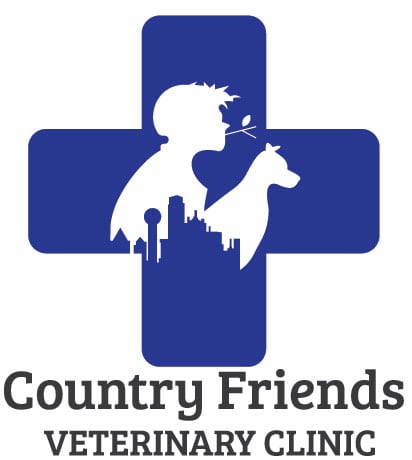Grieving After the Loss of a Pet

As we continue with the topic on “end of life events” with our pets, Dr. Rhonda Phillips, licensed veterinarian and owner of Country Friends Veterinary Clinic, will address the emotional aspect of realizing how to grieve our loss as humans, both adults and children, and with surviving pets in the home.
I would like to say that it is both important and natural to grieve after the loss of a beloved pet and companion. I see and hear many clients apologize for being so devastated after the loss of their pet. It is completely normal to go through extreme grief during this difficult time. Pets are an immense source of comfort, companionship and unconditional love in our lives and in the lives of our children and our other pets. There is a significant void once the deep pet/owner bond is gone. I would counsel you not to let others negate your pain, but seek out those who can listen and validate your feelings. Everyone grieves in their own way.
Some of the feelings or emotions you can expect to experience are those of extreme sorrow and loss from the passing of your pet. There is now a deep emptiness left where there once was a consistent interaction between you and your pet. Guilt can also arise, especially if you and the family had to make a decision to euthanize. Denial of the fact that your pet is actually gone and will not be coming back may also occur though there is a normal, initial inability to accept that your pet is really gone. Anger is another very real emotion that occurs in the grieving process. It is a feeling that is generally aimed at the disease or condition that has caused the loss, or at the inability to “fix” the pet and make them healthy again. Depression may be present and linger for weeks to months after the loss. All these emotions play a vital role in the grieving process and should be considered normal. Being honest and open with yourself and others regarding what you are experiencing is the first step to healing and working through the grief.
I have had clients share their thoughts, questions, and stories with me which they say helped them move beyond the grief. Ideas such as those mentioned by Dr Westwood in the earlier posts (part 1, part 2) (ie. saving a lock of hair from your pet, having a clay paw print made, and planting a tree in your pet’s memory) as well as having a funeral or memorial service in which everyone in the family is involved in the planning, writing a poem or story about your pet, or making a photo board and reminiscing with others about the pet are all ways to help work through the grief.
All of this information can be applied to almost anyone going through the grief of the loss of a pet, but over the years I have observed that children respond a little differently. Children between toddler and elementary age will “take on” the emotions of those adults around them and especially the parent(s). If you are expressing a sad or angry emotion, or you smile when talking about your pet, your young child will mimic these emotions. They will literally watch to see how or what you do and then follow you with their own, similar responses. Young children also have a tendency to be very objective and abrupt about death and may ask many point-blank questions that seem to show detachment from the situation. This is their way of processing the event and trying to understand what is happening. I have always advised parents to allow children to go through the grieving process and not hide it from them. Be open and honest and age appropriate with your responses. As children get older, middle school to young adults, I have noticed that they grieve deeper and sometimes longer than either younger siblings or older adults. They often question or comment on the fairness of the loss and question why their pet could not have been saved or why their pet had to be the one to have the disease or the one to have been in a circumstance that caused the death of the pet. Having friends and family who can show true empathy and validate their deep pain is crucial to their ability to move through the grieving process.
To complete the cycle of grieving for the loss of a pet, we need to also address the possibility that a pet still living in the household will go through a time of grief. Other pets in a household observe and know when there are changes in the home. Pets that have been close companions with the pet that has died, can show behavioral changes relating to their loss. They may wander around the house or yard anxiously looking for something. They may vocalize (whine or meow) more than usual. They may isolate themselves or may not want to leave a spot where their companion used to stay (ie a bed or kennel or room). They may not eat for a few days and may not eat well for an extended period of time. When talking to owners, and through personal experience, I have seen pets grieve for a few days to a few months. To help combat the grief of your other pet(s) you will need to spend extra time with them in activities and quiet time. With this attention, most pets will be able to move past their grief. Any questions or concerns regarding the health of the surviving pet should be addressed with us at Country Friends.
For further information or support please contact us. Our mission is to care for both our patients and their owners.
Dr. Rhonda Phillips also recommends the following sources for additional grief support:
- Online grieving support: https://www.rainbowsbridge.com/grief_support_center/grief_support_home.htm
- Telephone counseling is available by calling 214.461.5131; all calls are returned within 24 hours. The Pet Grief Counseling Support group meets the first Saturday of each month at 1:30 p.m. at the Jan Rees-Jones Animal Care Center at 2400 Lone Star Drive (I-30 & Hampton) in Dallas. For more info: https://www.spca.org/petgriefcounseling
- Children Grieving: https://www.rainbowsbridge.com/grief_support_center/Grief_Support/Chrildren_and_petloss.htm
- Pets Grieving: https://www.rainbowsbridge.com/grief_support_center/Grief_Support/Do_Pets_Grieve.htm
- This website has many wonderful/helpful offerings: http://www.journeyofhearts.org/grief/help.html

